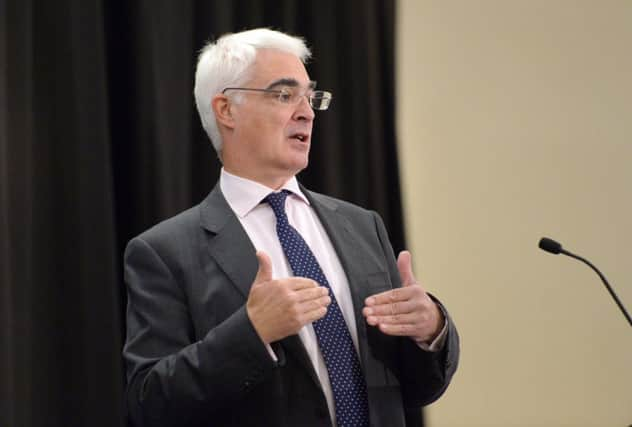Tom Peterkin: Debates about debates show problems


Debates about debates are perhaps not the most constructive way to get to the bottom of the benefits or otherwise of Scottish independence. But such rows have been a feature of the independence debate for some time now and are likely to continue until the nuts and bolts of the TV debates are hammered down. So far, we have seen David Cameron’s refusal to debate Mr Salmond denounced on a regular basis by a First Minister who clearly fancies his chances against the Prime Minister and has been reluctant to settle for a debate against Mr Darling.
“A big feartie” is one of the phrases Salmond has used to describe Cameron in a stormy preamble to a broadcasting event which must be one of the most hyped in Scottish political history.
Advertisement
Hide AdAdvertisement
Hide AdCameron has refused to take part and is probably well advised to stick to his position. Better Together is unwilling to let the TV debate become characterised as Scottish Salmond against English Cameron. The No campaign has also been advancing the argument that Darling is the best placed to take on Salmond, given that he lives in Scotland and therefore has a vote.
At the weekend, there were claims that Salmond had blinked first when the First Minister indicated that he was prepared to debate Darling if Cameron continued to ignore calls to participate.
With Darling signed up to take part in STV’s debate on 16 July, the debate about the debate then took another twist. Salmond had indicated he would be prepared to debate with Cameron on 16 July. If Cameron was unavailable, he would be prepared to debate with Darling after the Commonwealth Games, which end on 2 August. Then Better Together went in the huff when STV suggested putting back the date. Why can’t Salmond debate Darling on 16 July when he was free that day to take on Cameron?, the No campaign wondered. With Better Together originally disinclined to accept the new date of 5 August, STV’s plans have been mired in doubt (although last night Better Together appeared prepared to soften its stance). Meanwhile, the BBC’s plans for a Salmond/Darling head-to-head on 12 August are still on the cards, provided Salmond agrees.
Throughout all this bluster there has been little doubt that Salmond and Darling would eventually face each other. For those outside the Holyrood bubble, it must all seem a trifle abstruse. One conclusion that can be drawn is that the opposing sides are reluctant to agree on anything. Another is that too much referendum politics is dominated by process rather than substance.